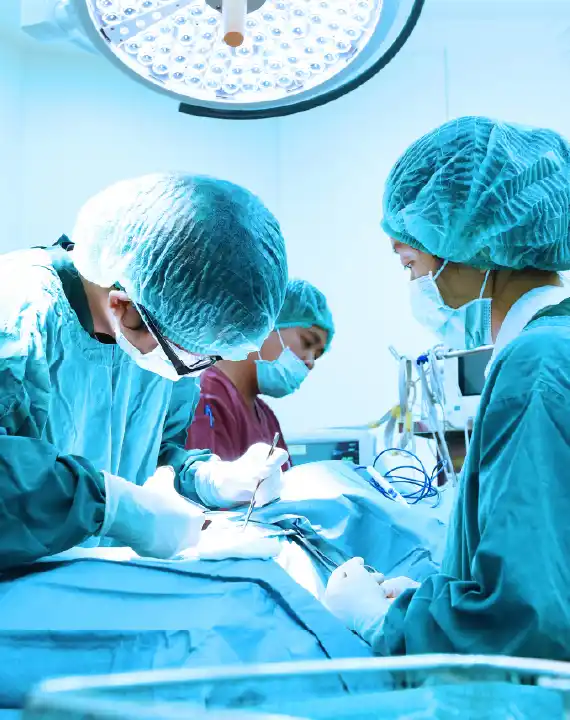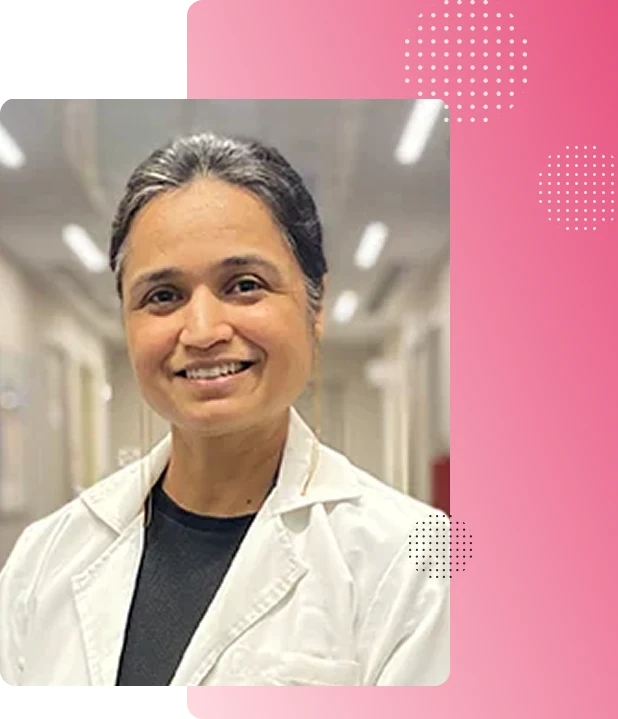Preparation
Pre-surgical evaluation (blood tests, imaging, ECG). Fasting for several hours before surgery.
Fibroids in the uterus are one of the most common problems that women face with regards to their reproductive health. They are benign or not carcinogenic, but they can often end up creating symptoms that make life much harder, such as heavy bleeding, pelvic pain, and problems with fertility overall.
Dr. Aruna Kalra is a well-known fibroid specialist gynaecologist in Gurgaon, who is at the forefront of treating uterine fibroids. She offers innovative, minimally invasive therapies that are personalised to cater to each woman's unique needs. Her method combines medical knowledge with compassionate care which in turn helps patients make an informed decision about their health. From making the right diagnosis to managing surgery and non-surgery, she enables patients to reclaim their quality of life with better, faster and clinically successful outcomes.
Uterine fibroids are medically also referred to as leiomyomas or myomas.
There are four primary forms of uterine fibroids based on where they are:
It is very important to know what kind and size of fibroid you have in order to plan the appropriate treatment path.
While small uterine fibroids may not produce symptoms, the ones that have grown larger or are more than one then watch out for the following signs:
Women who have symptoms of uterine fibroids should reach out to an experienced gynaecologist at once to avoid problems like anemia or any kind of fertility blockers that might be preventing them from successfully conceiving.
An experienced gynaecologist and preferably a fibroid specialist in Gurgaon will start the diagnosis with a thorough consultation and physical exam. Your doctor may do the following tests based on your symptoms and medical history:
Correct diagnosis will help you figure out if you can overcome the condition with help of medications or will you be needing surgery. Laparoscopic fibroid surgery in Gurgaon is a very common and safe alternative chosen by most experienced gynaecs when the condition warrants it. Make sure your doctor helps you make an informed choice.

The size, location, and symptoms of fibroids, as well as the person's fertility goals, will determine how they are treated. Dr. Aruna provides full care, from medication to surgery that is as little invasive as possible.

The precise cause that contributes to the development of uterine fibroids might not be well understood; nevertheless, research identifies some significant indicators:
If you don't treat fibroids, they might lead to a lot of unwanted health problems, such as:
Fibroids in the uterus are prevalent, but they don't have to run your life. Most women may manage their symptoms well and keep their fertility intact if they get diagnosed early and get the correct medical advice.
If you have heavy periods, pelvic pressure, or unexplained bloating, consult with Dr. Aruna Kalra, one of the best fibroid specialists in Gurgaon, for personalised, advanced care and a better tomorrow.
Uterine fibroids involves individualized options such as medication, minimally invasive procedures, or surgery (myomectomy or hysterectomy) based on symptoms, fibroid size, and patient preferences.
fibroids, endometriosis, uterine prolapse, cancer, or heavy bleeding.
total, partial, or radical hysterectomy.
Robotic-Assisted, Laparotomy, or Laparoscopic Ovarian Cystectomy.
age, medical history, and overall health.
Pre-surgical evaluation (blood tests, imaging, ECG). Fasting for several hours before surgery.
May be done in the lower abdomen, through the vagina, or with small camera-guided incisions.
Incisions or vaginal openings are sutured. Sterile dressing is applied.
Hospital stay usually ranges from 1–3 days (may be shorter with minimally invasive surgery).
Do fibroid require surgery?
Vaginal delivery with fibroid uterus
Fibroids & Symptoms
Here are some frequently asked questions
